第94章 THE NIGHT OF STRANGLERS(6)
Those circumstances Ludwig embodied in a fulminating letter which he wrote to Giovanna in answer to her defence against the charge of inaction in the matter of her late husband's murderers: "Giovanna, thy antecedent disorderly life, thy retention of the exclusive power in the kingdom, thy neglect of vengeance upon the murderers of thy husband, thy having taken another husband, and thy very excuses abundantly prove thy complicity in thy husband's death."So far this was all as Charles of Durazzo could have desired it.
But there was more. Ludwig was advancing now in arms to take possession of the kingdom, of which, under all the circumstances, he might consider himself the lawful heir, and the Princes of Italy were affording him unhindered passage through their States. This was not at all to Charles's liking. Indeed, unless he bestirred himself, it might prove to be checkmate from an altogether unexpected quarter, rendering vain all the masterly play with which he had conducted the game so far.
It flustered him a little, and in his haste to counter it he blundered.
Giovanna, alarmed at the rapid advance of Ludwig, summoned her barons to her aid, and in that summons she included Charles, realizing that at all costs he must be brought over to her side.
He went, listened, and finally sold himself for a good price the title of Duke of Calabria, which made him heir to the kingdom.
He raised a powerful troop of lances, and marched upon Aquila, which had already hoisted the Hungarian banner.
There it was that he discovered, and soon, his move to have been a bad one. News was brought to him that the Queen, taken with panic, had fled to Provence, seeking sanctuary at Avignon.
Charles set about correcting his error without delay, and marched out of Aquila to go and meet Ludwig that he might protest his loyalty, and range himself under the invader's banner.
At Foligno, the King of Hungary was met by a papal legate, who in the name of Pope Clement forbade him under pain of excommunication to invade a fief of Holy Church.
"When I am master of Naples," answered Ludwig firmly, "I shall count myself a feudatory of the Holy See. Until then I render account to none but God and my conscience." And he pushed on, preceded by a black banner of death, scattering in true Hungarian fashion murder, rape, pillage, and arson through the smiling countryside, exacting upon the whole land a terrible vengeance for the murder of his brother.
Thus he came to Aversa, and there quartered himself and his Hungarians upon that convent of Saint Peter where Andreas had been strangled a year ago. And it was here that he was joined by Charles, who came protesting loyalty, and whom the King received with open arms and a glad welcome, as was to be expected from a man who had been Andreas's one true friend in that land of enemies. Of Charles's indiscreet escapade in the matter of Aquila nothing was said. As Charles had fully expected, it was condoned upon the score both of the past and the present.
That night there was high feasting in that same refectory where Andreas had feasted on the night when the stranglers watched him, waiting, and Charles was the guest of honour. In the morning Ludwig was to pursue his march upon the city of Naples, and all were astir betimes.
On the point of setting out, Ludwig turned to Charles.